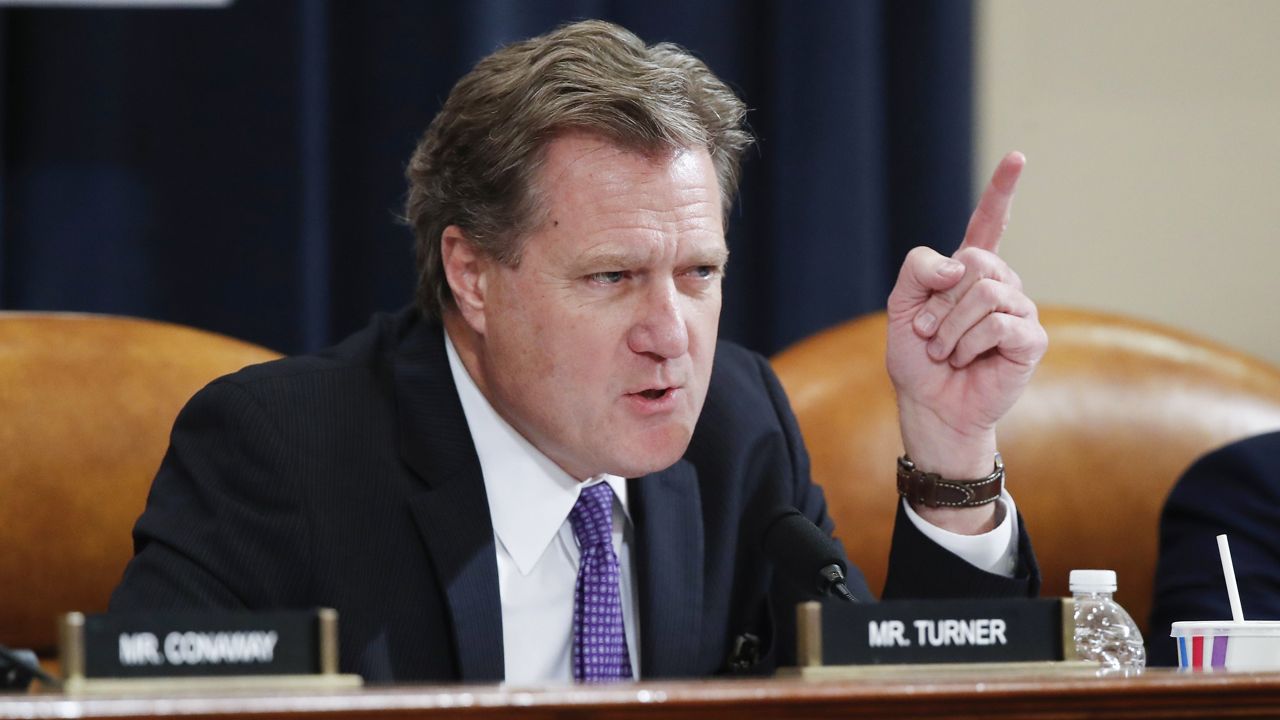Calling it “the Cuban Missile Crisis in space,” Rep. Mike Turner, R-Ohio, the chairman of the House Intelligence Committee, urged the Biden administration Thursday to declassify information about Russia’s work on a nuclear anti-satellite weapons program.
What You Need To Know
- Calling it “the Cuban Missile Crisis in space,” Rep. Mike Turner, R-Ohio, the chairman of the House Intelligence Committee, urged the Biden administration Thursday to declassify information about Russia’s work on a nuclear anti-satellite weapons program
- Speaking at the Center for Strategic and International Studies in Washington, Turner issued blunt warnings about Russia’s efforts
- "The Space Age will end when Russia launches its nuclear anti-satellite weapon into orbit," he said
- White House national security spokesman John Kirby called Turner’s characterization of the administration’s efforts “wrong"
Speaking at the Center for Strategic and International Studies in Washington, Turner issued blunt warnings about the Russia’s program.
“The Space Age began when Russia launched Sputnik in 1957,” Turner said. “The eyes of the world turned to the sky and wondered how space and technology would now change life on Earth. The Space Age will end when Russia launches its nuclear anti-satellite weapon into orbit.”
In February, Turner issued a vague warning calling on the Biden administration to declassify information about “a serious national security threat.” A day later, White House national security spokesman John Kirby confirmed U.S. intelligence officials have information showing Russia has acquired a “troubling” emerging anti-satellite weapon. The weapon was not capable of directly causing physical destruction, Kirby said at the time.
Last month, Pentagon spokesman Maj. Gen. Patrick Ryder said the U.S. assessed that Moscow has launched a satellite into low orbit that is “likely a counter-space weapon presumably capable of attacking other satellites in low Earth orbit.”
Despite that, Turner said Thursday the Biden administration had not released any additional information since initially confirming the existence of the Russian program. The Ohio Republican accused the administration of “failing” to adequately address the threat.
“What I call on them is to tell the world what is the status of this in development,” Turner said. “Does that mean that this is a drawing on a on a drafting board? Does this mean this is a research project in a lab? Does this mean that it's something in a manufacturing facility? Does it mean that there's nuclear warheads that have been created? Is there a satellite? Is there a missile?
“They're avoiding this discussion because they're avoiding having to admit that they're not really doing anything.”
Turner also urged the U.S. and its NATO allies to enforce the 1967 United Nations Outer Space Treaty, which declares countries not place nuclear weapons or weapons of mass destruction in space.
“Such treaties are negotiated through strength, something the Biden administration seems incapable of showing,” Turner said.
Speaking to reporters Thursday, Kirby called Turner’s characterization of the administration’s efforts “wrong.”
“We have absolutely taken this very seriously,” Kirby said. “We've been working this particular problem set from every possible angle, including through intense diplomacy with countries around the world and obviously through direct conversations with Russia. We've been working hard to get other countries to join us in making clear of what the dangers are of an anti-satellite weapon that's designed to carry a nuclear weapon.”
He noted that in April, the U.S. and Japan introduced a U.N. resolution calling on nations to prevent a dangerous nuclear arms race in outer space. Russia vetoed the measure.
In May, John Plumb, former assistant defense secretary for space policy, testified to the House Armed Services Committee that a nuclear anti-satellite weapon “could pose a threat to all satellites operated by countries and companies around the globe, as well as to the vital communications, scientific, meteorological, agricultural, commercial and national security services we all depend upon.”
Turner said the U.S. “must have an alternative to space right now. There isn’t one.”
He said it would require trillions of dollars and time “we don’t have” for the U.S. to build duplicative systems to preserve what is already deployed in space.”
Turner acknowledged there are risks with confronting Russia, adding the Biden administration might be reluctant to prevent escalating tensions.
“However, Russia is the escalatory aggressor,” Turner said. “Escalation has already occurred. Now the United States must stand with our allies to stop Day Zero and preserve space as the U.N. Outer Space Treaty intended — for the betterment of all mankind.”
“Day Zero” is the term Gen. B. Chance Saltzman, chief of space operations for the U.S. Space Force, has given for the potential launch date of Russia’s nuclear anti-satellite weapon.
“Because from that day, no one can count on space the next day,” Turner said.
Spectrum News' Maddie Gannon and The Associated Press contributed to this report.



